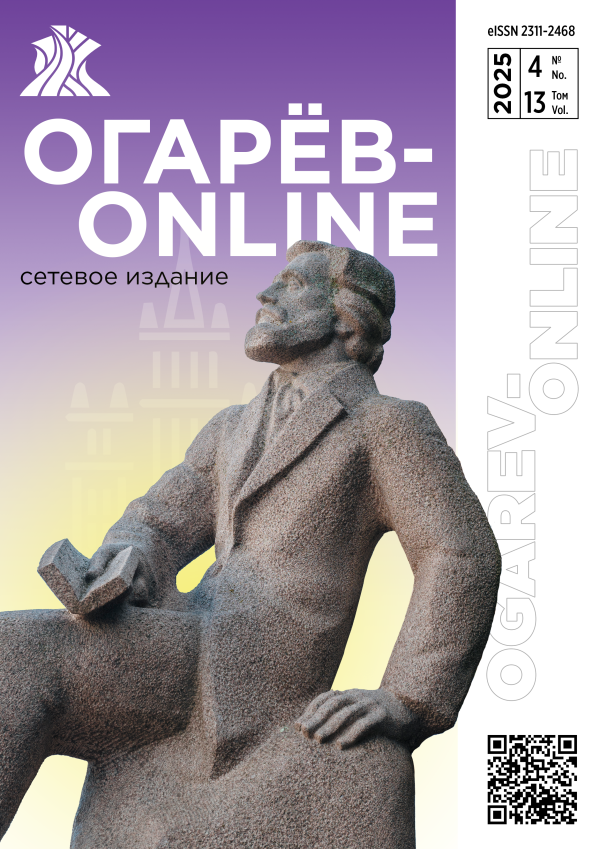Vol 2, No 23 (2014)
- Year: 2014
- Published: 01.12.2014
- Articles: 10
- URL: https://ogarev-online.ru/2311-2468/issue/view/19175
Full Issue


An energy saving assessment of boiler flue gas heat: a study of JSC "Mordovsky bacon"
Abstract
The article considers the results of an instrumental measurement of boilers at JSC "Mordovsky bacon". The author analyses their work, identifies their heat balance components, and presents an assessment of their energy saving potential both in physical and monetary terms.


Modeling of boiler specific fuel consumption
Abstract
The article considers the least-square method to calculate the experimental data relation: the network heat supply and the specific fuel consumption on 1Gkal dependence on the outdoor temperature. In this connection a regression equation is developed. The authors present a comparative study of the calculated and actual values of the specific fuel consumption in question.


On mixing coolants in thermal network
Abstract
The article presents a brief analysis of the effectiveness of modern devices for mixing coolants as well as their advantages and disadvantages. The authors point out some possible causes of the mixing device efficiency reducing. The study presents a mixing station that will reduce the operating power consumption when mixing coolants.




On pulse circulation in the hot water system with shell-and-tube heat exchanger
Abstract
The article presents a brief analysis of hot water systems and reasons of their energy efficiency reducing. To solve the problem, the authors suggest intensifying of heat and self- cleaning heat transfer surfaces of the shell-and-tube heat exchanger based on the transition to the pulse circulation of the heated coolant circuit.




The energy chain of plate heat exchanger at pulse mode of coolant flow
Abstract
The theory of energy chains is used to consider the non-stationary processes in hydraulic systems. The paper presents the theoretical frequency response of the hydraulic system considered. The authors also calculate the influence of fluid mass and pipeline compliance on the frequency response. Consequently, the experimental study presents the frequency response of the hydraulic system considered.


An efficient algorithm of boiler efficiency assessment
Abstract
The article presents an efficient algorithm of boiler efficiency assessment, considering the power value and gas consumption inlet and the enthalpy and water consumption outlet. The boiler efficiency is a ratio of the effective power outlet and inlet. The value of the effective powers is calculated through statistical characteristics of probabilistic processes of its components.


Modeling and improving of prediction of actual thermal losses in closed heating network
Abstract
The article considers the techniques to identify thermal losses in closed heating networks and problems of their use. The authors check adequacy of the techniques’ application. In this connection, the study suggests a forecasting technique of the actual thermal losses, a graphic model of the prediction process, and a spreadsheet to simplify the calculations. Consequently, a forecast of the thermal losses of the studied system in 2014 is presented.

















